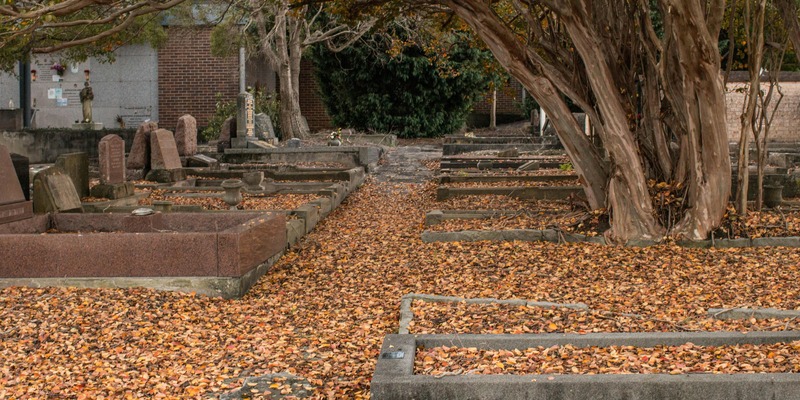In Australia, there are several types of funerals available, and making that decision can vary depending on the cultural, religious, and personal preferences of the deceased and their loved ones. Here are some of the most common types of funerals in Australia in 2025.
Traditional funeral.
A traditional funeral is the most common type of funeral in Australia. It typically involves a funeral service that is held in a funeral home, church, or other place of worship.
A eulogy or tribute, readings or prayers from a religious or cultural tradition, music, and a procession to the graveside or crematorium are just a few examples of possible components of the service. Depending on the deceased's and their family's cultural or religious background, the type of service and rituals may change.
The body may be buried in a cemetery, cremated, and then either interred or scattered in an area with meaning to the deceased or their family.
Single-venue funeral service.
A single-venue funeral service takes place entirely in one location, such as a chapel, funeral home, or community hall. The viewing, ceremony, and committal, if included, are all held in the same venue rather than moving to a cemetery or crematorium afterward.
The service may include a eulogy or tribute, readings, music, and a moment of reflection or committal conducted at the venue. Unlike a traditional funeral, which often involves a separate graveside or crematorium component, a single-venue service combines all parts of the farewell in one place. This option provides a structured yet simplified approach for families who prefer to hold the entire farewell within one place.
Green or eco-friendly funeral.
A green funeral is an eco-friendly alternative that prioritises reducing the environmental impact of the funeral process. This can be achieved in many ways, such as using biodegradable or sustainable materials for the casket or urn, choosing a natural burial in an eco-friendly cemetery or forest, or selecting a cremation method that uses less energy and produces fewer emissions.
Some families choose creative and meaningful details, such as urns made from recycled paper and bio paints, including shell-shaped urns designed for submersion, or keepsakes like jewellery made from ashes or small biodegradable urns for scattering or interment. In addition, some green funeral providers may offer carbon offsetting options or plant trees in memory of the deceased. A green funeral can be a meaningful way for families to honour their loved ones while also being mindful of the impact on the environment.
Green funerals are becoming increasingly popular, with 29% of seniors seeing the movement towards more eco-friendly funerals in the past five years, according to the Australian Seniors Cost of Death report.
Direct cremation.
Direct cremation is a simple and low-cost option where the body of the deceased is cremated immediately after death without any formal funeral service or viewing.
The ashes are then typically returned to the family in an urn, and they may choose to scatter the ashes or keep them in a special place as a memorial.
Direct cremation is often chosen by those who prefer a simple and private farewell for their loved one or for financial reasons, as it can be a more affordable option than a traditional funeral service. The average cost of a cremation without a ceremony or service is $3,513 according to Gathered Here.
The Australian Funeral Directors Association (AFDA) says 161,300 funerals are conducted in Australia each year, 72 percent of which are cremations. Funeral service providers have also reported a popularisation of ‘no service’ or direct cremation, largely due to the impacts of COVID-19.
Many people do not want a ceremony for themselves after they pass away. According to the 2021 Australian Funeral Industry report, 2 in 5 responders want their ashes to be scattered without a ceremony.
No service, no attendance burial.
Similarly to a direct cremation, a no service, no attendance burial is a straightforward option where the burial takes place privately, without a viewing, a ceremony, or attendees present. It’s ideal for families who do not wish to have a service, or who plan to hold their own memorial or celebration of life at a later date.
This option typically includes the professional transfer of the deceased into care, a simple coffin, transportation to the cemetery, and coordination with cemetery staff. Families, however, should also anticipate additional cemetery-related costs such as the purchase of the burial plot, grave digging or “open and close” fees, and any ongoing maintenance fees.
It is considered one of the more affordable options compared to traditional services as it excludes venue hire and ceremonial components.
Memorial service.
A memorial service is a gathering of family and friends to remember and celebrate the life of the deceased. It is usually held after the burial or cremation and may be more flexible in terms of timing and location.
The service may include elements such as music, readings, speeches, and other forms of tribute. A memorial service can be personalised to reflect the life and interests of the deceased and can be held in a variety of venues such as a church, community centre, park, or private residence. This type of service allows family and friends to come together and support each other while honouring the memory of their loved one.
Memorial service costs can vary widely depending on venue hire, catering, and other additional services such as floral arrangements, audio-visual setup, printed materials, and the type of ceremony chosen.
It’s becoming increasingly more accepted to hold a service after a cremation or burial. 23% of survey participants of Bare’s Funeral Beliefs and Values Study accept that a funeral service or memorial can take place after, rather than before, a cremation or burial.
Religious funeral.
A religious funeral is a type of funeral often dictated by the customs and beliefs of the deceased's religion. The service may include prayers, religious readings, and other rituals specific to the faith.
Whilst 47% of Australians identify with a religious faith, religious funeral arrangements are becoming less frequent.
Of religious respondents in the 2021 Australian Funeral Industry report, only 10% strongly agree that religion or spirituality would impact the choices they make regarding funeral planning and memorial services.
For families who wish to honour cultural or religious traditions, there are providers across Australia who can tailor services to specific faiths. Many funeral directors are also experienced in supporting diverse practices, ensuring services are carried out with respect and understanding.
Final thoughts on types of funerals in Australia 2025.
It is important to note that is not an exhaustive list of types of funerals, and there can be a large number of subsets within each section; e.g. religious funerals vary greatly by the type of religion practised. We are also seeing an increase of less common funeral options, which are set to become more mainstream in the future.
When planning, it is also helpful to understand the general costs involved. The national average funeral cost is around $9,076 according to the Australian Seniors The Cost of Death Report 2.0, though prices can vary significantly depending on the location, funeral provider, and the type of service chosen.
Before making any arrangements, it can really help to have a clear picture of what things cost and what your rights are as a consumer. Asking for detailed quotes and taking the time to compare providers can make a big difference. It helps you make thoughtful choices and avoid any surprises later on.
If you’d like to plan your own funeral in advance, a pre-paid funeral plan might be worth considering. It lets you pay for the service at today’s prices, so you know everything is covered and your wishes will be followed when the time comes. In Australia, fully paid pre-paid funerals are usually exempt from Centrelink asset tests, which can also make them a practical way to manage future expenses.
No matter what kind of service feels right, it’s a good idea to write down your wishes and share them with those closest to you. Doing so can give your family clear guidance and help ensure that your farewell reflects who you are.
In the end, the best kind of funeral is one that reflects the wishes of the deceased and feels right for their loved ones.
At Bare, we can take care of cremation and memorial arrangements for you. Head to the link below or give our friendly team a call on 1800 071 176.
Disclaimer: This article and all information and pricing within it was accurate at the time of writing. Please see bare.com.au or linked sources for current pricing. This article provides general information only and does not constitute professional advice. Please consult a qualified expert for guidance specific to your situation.







%20(1).png)